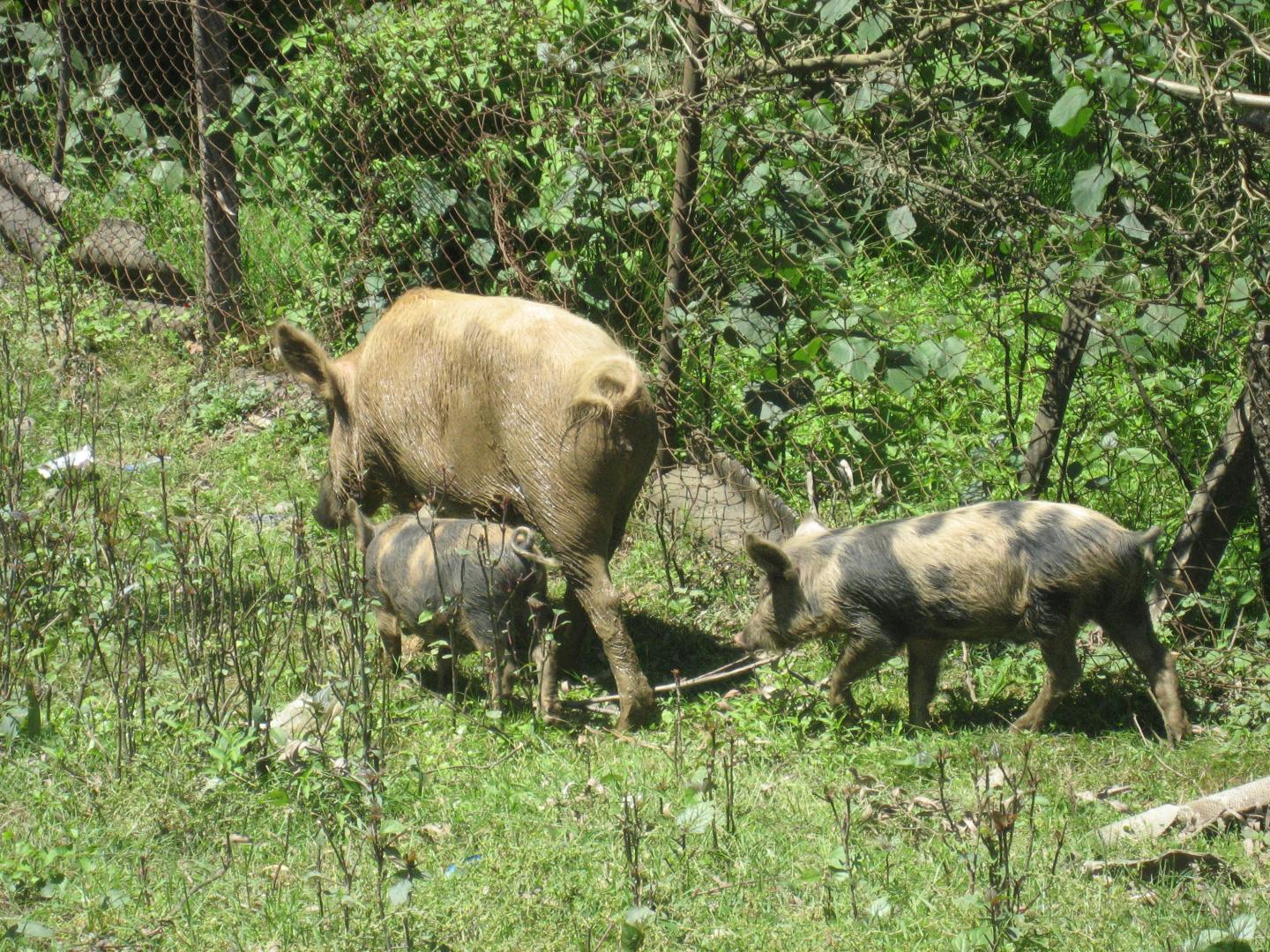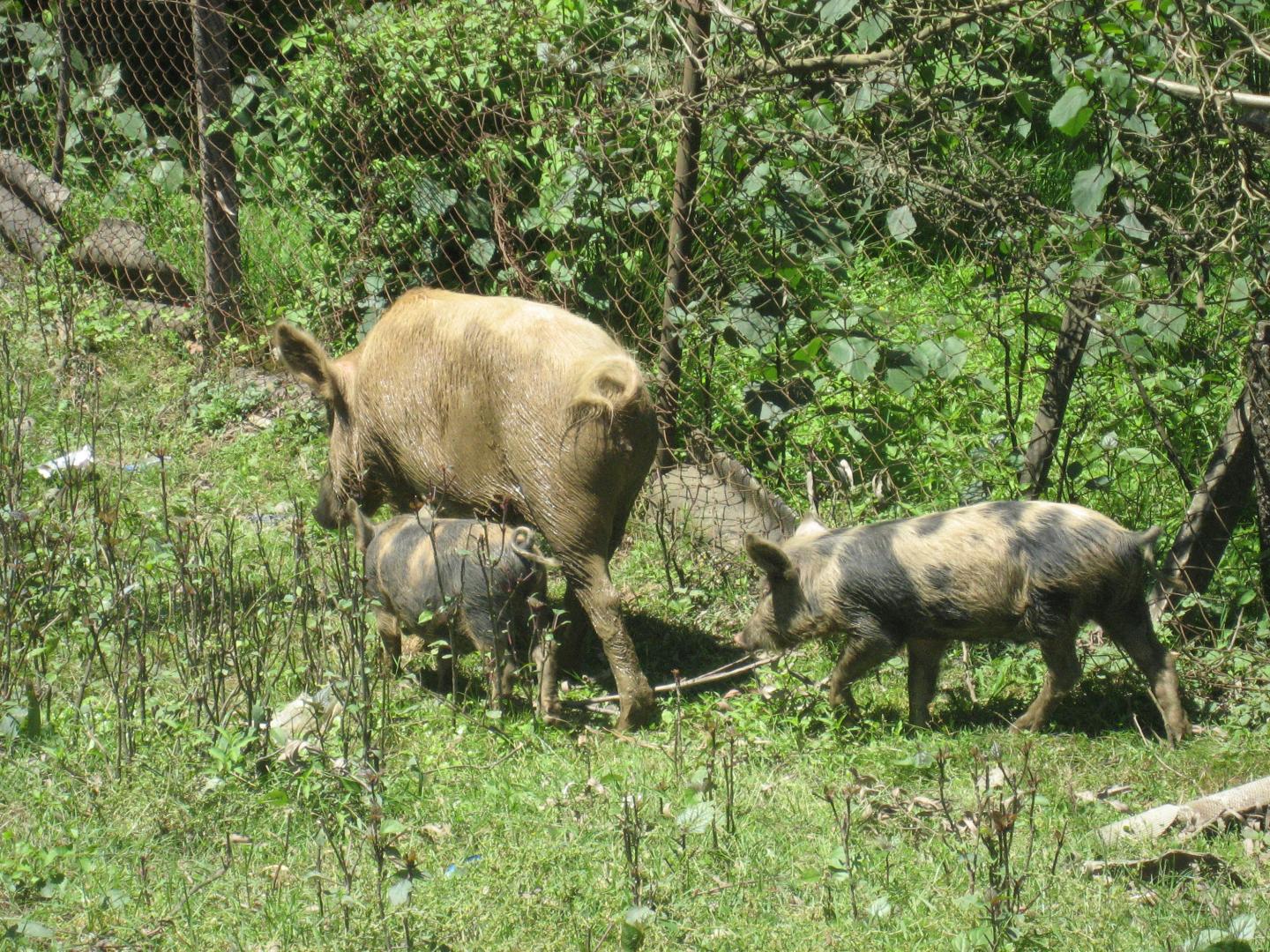
Credit: FAO
Understanding how live pigs are traded between villages and backyard farmers can help health agencies better understand how devastating swine diseases spread, according to a study published recently in the journal PLOS ONE.
Researchers at the University of California, Davis' Center for Animal Disease Modeling and Surveillance and the United Nation's Food and Agriculture Organization examined patterns of live-pig trade in the republic of Georgia. The country was the first in Europe to be affected by African swine fever in 2007, and from there the disease spread to the Caucasus region, Russian Federation and Eastern Europe, where it is still actively spreading today.
African swine fever has a mortality rate of over 90 percent in pigs, often killing within seven to 14 days. Endemic to sub-Saharan Africa, the virus is re-emerging in new areas and is a major threat to pork production worldwide, both through direct losses and the effects of culling, trade sanctions and export restrictions imposed by countries to stop its spread. There is currently no treatment or vaccine for the disease.
Studying Pig Trade to Understand How Virus Spreads
Esther Kukielka, graduate student at CADMS, UC Davis School of Veterinary Medicine, and first author of the study said that mathematical modeling and social-network analysis could shed light on how the virus might move through pig populations in Georgia and other countries where backyard pigs are predominant. These farmers typically raise a few animals for their own consumption and the economic impact for them is huge.
"We're still investigating how African swine fever is moving in these regions, but pig trade and pig markets, in combination with wild boar movements, seem to play an important role," said Kukielka.
"The disease is likely also spreading through the trade of contaminated pork products and the use of uncooked pork leftovers to feed pigs," she said. "Results of our study can help to identify high-risk villages where target education and outreach activities should be conducted, mainly for pig producers and middlemen. We hope it will also help to inform the design of more cost-effective surveillance, prevention and control programs."
Kukielka said that preventive and control measures could include improving management, biosecurity and husbandry practices, conducting community workshops, providing better access to veterinarians, or encouraging governments to mitigate farmers' losses by compensation or replacement of the dead or slaughtered pigs.
Kukielka began working on African swine fever in Uganda before coming to UC Davis. In Africa, the virus often spreads among domestic pigs mainly through trade of infected animals or the use of contaminated leftovers to feed pigs. Pig-to-pig transmission occurs mainly by contact with contaminated blood, although the virus can also spread through urine or feces from infected pigs. The virus also can be spread from wild warthogs to domestic pigs by ticks.
###
Funding for the study was provided by FAO, CADMS and the Loreto Godoy Memorial Fellowship at UC Davis.
Media Contact
Andy Fell
[email protected]
530-752-4533
@ucdavisnews
http://www.ucdavis.edu
Original Source
http://blogs.ucdavis.edu/egghead/2017/06/28/live-pig-markets-traders-provide-insight-controlling-african-swine-fever/ http://dx.doi.org/10.1371/journal.pone.0178904
############
Story Source: Materials provided by Scienmag





